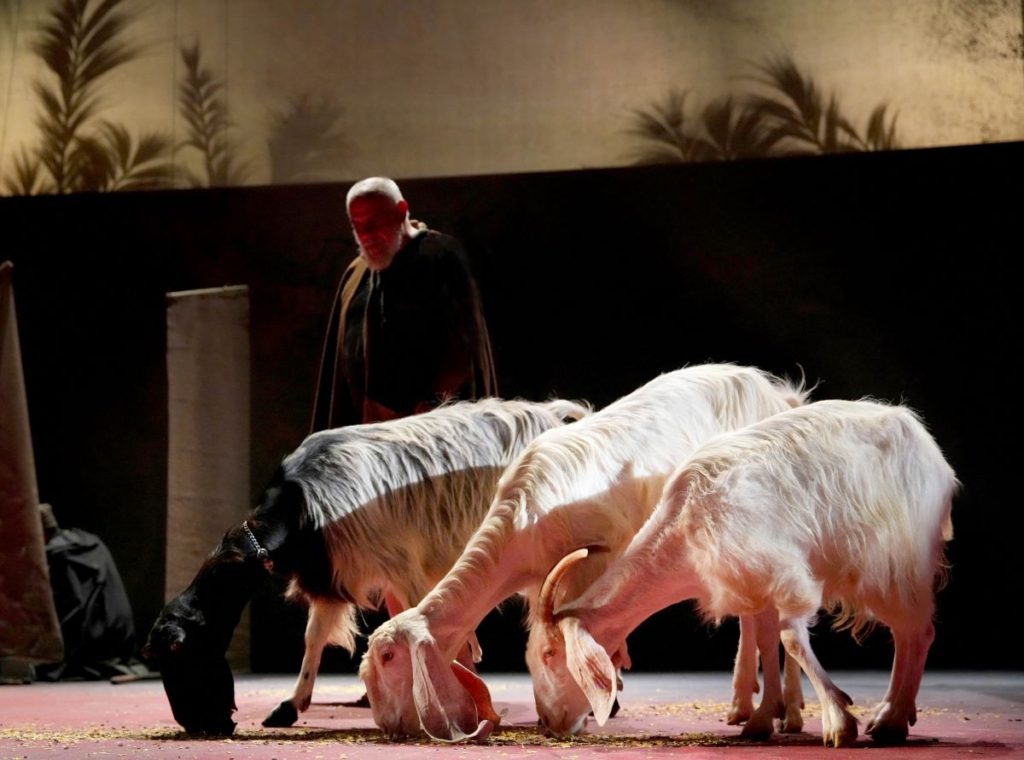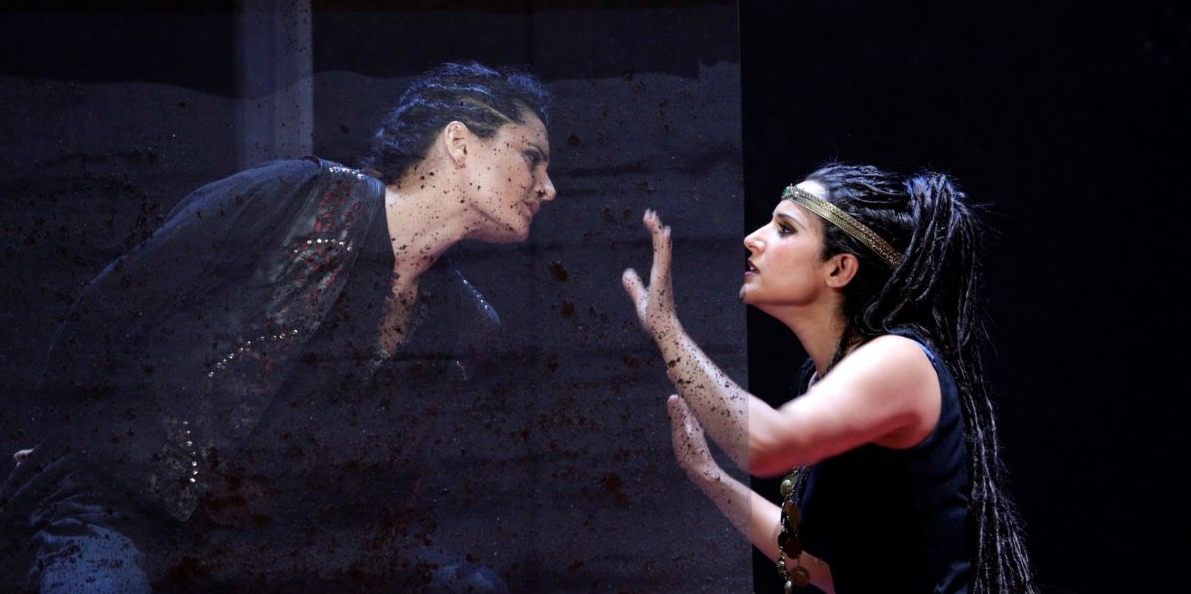The public realised that 21-year-old Rossini was something special in 1813 after the success of Signor Bruschino and Italiana in Algeri. But Aureliano in Palmira, commissioned in 1813 to open La Scala’s carnival season, was not popular: people were tired of war – emperors obsessed with conquering was too close to home whilst Napoleon conquered Europe followed by Austria in 1814. Aureliano fell into obscurity after 1831. It was revived a few times, in 1980 and 2011 with countertenor Franco Fagioli. This revival premiered in Pesaro in 2014.
Arsace is the only time Rossini composed for a castrato – superstar soprano castrato Giovanni Battista Veluti. Veluti always improvised and embellished his arias, but the embellishments were so rich that Rossini could not recognise his music, so much had the musical line been distorted. Rossini was so impressed with Veluti’s original, difficult embellishments that he composed even more thickly marked ornamentation thereafter.
The story: in 272AD, Roman emperor Aurelian defeated and captured Zenobia, widow of the king of Palmyra (Syria), who taken to Rome where she lived a luxurious life in captivity in Tivoli. Rossini’s version adds a love triangle between lovers Zenobia and Arsace, and Aurelian who also loves Zenobia. Aurelian saves both of them from death and allows them to reign together, swearing allegiance to Rome.
Aureliano was voted best rediscovered work international opera awards 2014, so don’t be fooled by the adage – ‘if it is rarely performed, there must be a reason’. The music is stunning and the major roles incredibly difficult to sing. As there are so many terrific Rossini operas, companies usually choose mainstream.
Rossini self-borrowed Aureliano’s original music for later operas, in particular Il Barbiere di Seviglia (premiered in 1816), which has the same overture and serenade – ‘Ecco ridente’ and Rosina’s cavatina. Having sung Rosina, it is weird hearing her music with a different vocal line to the same accompaniment.
Scenes are set in a temple, palace, desert, prison, battlefield, but instead the set is a series of raised or lowered screens. Director Martone explained – “recalling the economy and elegance of desert life”. “Where Arsace takes refuge amongst shepherds, I brought to life by the presence of goats roaming freely”. Although the set was disappointing as drab screens are no substitute for exotic temples, it worked, and did conjure up the desert: the three goats stole the show!

A harpsichord appears and disappears behind the screens, but it is distracting and takes focus away from singers performing difficult music.
Greek conductor George Petrou held everything together admirably, especially with the huge stage, and chorus spilling onto the sides.
Aureliano, Zenobia and Arsace all have demanding music, encompassing a gamut of emotions – love, passion, rage, jealousy, and all soloists are top-notch. Duets and trios are dramatically important, more than in some operas, for example Act I ‘Serena i bei rai’. There is a gorgeous violin solo in the chorus ‘l’Asia in Faville É volta’.
Spanish soprano Sarah Blanch as Zenobia enrobed in gold, looks gorgeous, giving an exciting performance, especially in the high register (she sings a terrific Queen of the Night). Her lightish voice coped excellently with the difficult music. ‘Là pugnai’ demonstrated sparkling top notes and difficult coloratura, leaps and legato lines are stunning.
Italian fast-rising mezzo star Raffaele Lupinacci as Arsace is terrific, vocally and physically. Arsace has wonderful music to sing, demanding an expansive register and vocal palette. Lupinacci has rich low notes, gorgeous high notes and stunning coloratura and physically credible as a man. ‘Eccomi, inguisti numi’ and the gran scena ‘dolci silvestri’ are standout scenes allows Lupinacci to show off the beauty of tone, legato line, coloratura, and vocal palette.
Blanch and Lupinacci are a perfect combination, both excellent actors; their duets have some of the best music – Va! M’abbondona the love duet with the supermoon behind is vocally and visually stunning.
Russian tenor Alexey Tatarintsev as Aureliano sings the difficult high lying music, with aplomb, makes the most of Aureliano’s conflicted emotions, strutting across the stage as Emperor, with frustrated desires.
Italian bass Alessandro Abis, showed off his lovely rounded tone in ‘Stava, dirà la terra’, although the top needs polishing.
Italian mezzo Marta Pluda’s Publia made the best of the below par Rossini aria at the end of Act 2.
Sunnyboy Dladla’s Oraspe needs to improve his intonation, he was flat at times.
I loved this performance, hopefully ROF will make Aureliano more widely available

